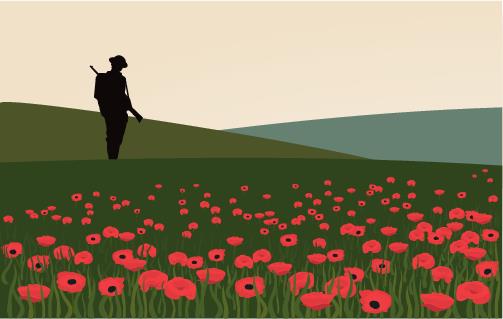The Soldier

By Rupert Brooke
Read by Richard Scott
Sound edited by Jana Elizabeth
The First World War ended on 11th November 1918. The Sunday nearest to the 11th of November is marked each year as Remembrance Day in many countries. The symbol of day is the red poppy that grew on many of the battle fields.
This poem was written during the First World War by a poet who was also a soldier. His name was Rupert Brooke. His father was headmaster of the famous school called Rugby. He later studied at Cambridge University and travelled around Europe before the outbreak of war.
Unlike many war poems, this is a gentle and beautiful piece of verse. It is describing a land that could not be more different from the horror of the battlefield.
IF I should die, think only this of me:
That there's some corner of a foreign field
That is forever England. There shall be
In that rich earth a richer dust concealed;
A dust whom England bore, shaped, made aware,
Gave, once, her flowers to love, her ways to roam,
A body of England's, breathing English air,
Washed by the rivers, blest by suns of home.
And think, this heart, all evil shed away,
A pulse in the eternal mind, no less
Gives somewhere back the thoughts by England given;
Her sights and sounds; dreams happy as her day;
And laughter, learnt of friends; and gentleness,
In hearts at peace, under an English heaven.
And that was ‘The Soldier’, but Rupert Brooke. You might like to know that this poem was written in a special form known as a Sonnet. Sonnets always have 14 lines.
The famous English playwright William Shakespeare wrote a number of poems in this form.